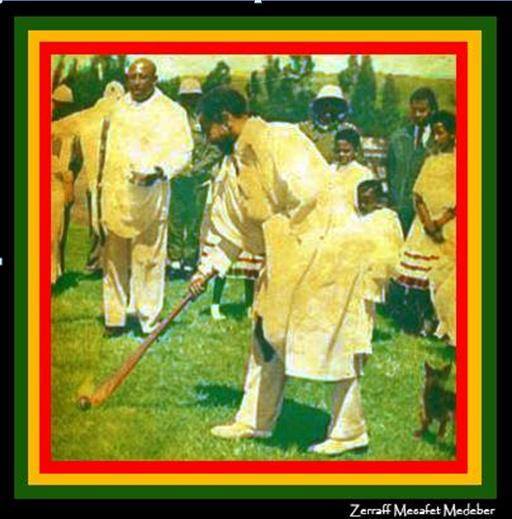Quick Facts | Ethiopian Orthodox Tewahedo Christmas | Genna
While the Gregorian calendar celebrates Christmas on the 25th of December, Ethiopia still retains the ancient Julian calendar in which Christmas falls on January 7th (of the Gregorian calendar.) Its typically, a hot summer day and people in towns and villages dress up in their finest to celebrate.
The Ethiopian name given to Christmas is Ledet or Genna which, according to elders, comes from the word Gennana, meaning “imminent” to express the coming of the Lord and the freeing of mankind from sin. Genna is also the name given to a hockey-like ball game. Legend has it that when shepherds heard of the birth of Christ they rejoiced and started playing the game with their sticks. Men and boys in villages now play the traditional Genna game with great enthusiasm in the late afternoon of Christmas day, a spectacle much enjoyed by village communities and the elders who referee the game.
Genna festivities begin early in the day, as early as 6:00am when people gather in churches for mass. For the clergy it has begun much earlier, 43 days before, with the fasting period leading up to Genna. This pensive fasting period is required of the clergy and is known as the fast of the prophets. The fast of Advent is carried out to cleanse the body and soul in preparation for the day of the birth of Christ. Everyone stands throughout the worship service for up to three hours. The clergy and Debtera (scholars versed in the liturgy and music of the church) lift their voices in hymn and chant just as it has been for over a 1,500 years when Ethiopia accepted Christianity. This ancient rite culminates in the spectacular procession of the Tabot (the Tabot is symbolic of the Ark of the Covenant) and carried on top of a priest’s head). The procession makes its way three times around the church amidst ululation and chiming church bells, dazzling umbrellas and colorful attire of the clergy and Debteras (especially designated to accompany the Tabot) as well as a throng of Christians who follow the procession with lighted candles.
Afterwards, people disperse to their homes to feast and the clergy break their fast. Food and drink are plentiful, with many homes preparing the special meals characteristic of all big festivities highlighted on the Ethiopian calendar. Food served at Christmas includes Doro Wat and Injera, a spicy chicken stew eaten with the sourdough pancake-like bread. Often, tej, a local wine-like drink made from honey, accompanies the feast.
Christmas is quietly shared and celebrated in groups of friends and family. Gift giving is a very small part of Christmas festivities in Ethiopia. Only small gifts are exchanged amongst family and friends at home. But one gift most eagerly awaited by all children is a new outfit that they wear with pride on Christmas Day. The festive mood continues until the late hours of the evening. The joy of giving and sharing, extends beyond religious beliefs and spreads the spirit of peace on earth and goodwill to all mankind throughout the world.



